Continuing TREND‘s monthlong celebration of Women’s History Month, we sat down with Susan Vandergriff, Founder and CEO of The Happy Birdwatcher Company. After participating in The Company Lab’s (CO.LAB) Lifestyle & Consumer Goods Accelerator –a 12-week program for startups bringing quality products and innovation to the food/beverage and outdoors industries– Vandergriff’s company is experiencing impressive growth, recently garnering national media via The Washington Post‘s 2022 holiday gift guide. TREND sat down with Vandergriff to learn more about her interesting and exciting concept for starting her own small business.
TREND: Tell us about your passion for birds and birding, and how your journey into entrepreneurship spring from that love.
Previously I was the executive director of Step Ahead Chattanooga, a nonprofit that provides access to free birth control for women. I also worked in banking for 17 years, before transitioning into the nonprofit world. I was happy in that role until I discovered birds completely by accident. I was sitting on my porch one morning doing an anxiety-reducing exercise I’d heard about in a podcast. I was experiencing a difficult season in my personal life, and this podcast had suggested a mental exercise to ground yourself by looking around and naming five things you can see, five things you can hear, three things you can touch, two things you can smell and so forth — using all of your senses to relieve stress. I gave it a try and when I started listening, I heard birdsong and thought, that’s kind of cool. I began to hear different kinds of birds singing and became totally fascinated by the beauty of all these different bird sounds around me. I wanted to know what kind of bird was singing so I downloaded an app on my phone that told me I was hearing a wide-eyed Vireo. I’d never even heard of such a bird. I went to identify all the other birds I was hearing using this app and all of a sudden I’d totally forgotten about the anxiety-reducing exercise because it was so interesting, I was having fun. It became my new passion, to where everyday, multiple times a day and night, I’m outside on the porch listening for birdsong. I’m telling everybody about birds.
So on my next birthday, my daughter bought me a bird feeder and my husband got me a pair of binoculars. And in the process of Googling all these birds to ID them, an article pops up about how bird watching is linked to human happiness, which I obviously identified with myself. But there’s actual scientific research –a huge study involving like 26,000 people in 23 different countries– showing that the greater diversity of bird species someone has in their home environment, the greater their personal happiness. The study found that just a ten percent increase in the number of bird species in your local environment, the resulting increase to your happiness is the same equivalent to getting a ten percent pay raise. Article after article after article kept saying exposure to birdsong is great for relieving depression, improving the health of hospital patients, helping kids to score better on tests.
Around this time, I’m just wanting pretty birds to come and hang out in my yard. I’d hung my new bird feeder and went to the store to buy some birdseed and immediately was confused and overwhelmed by all the options. I had no idea what to choose, as I’m still learning about what birds are in my area. There was so many choices. It was also all contained in plastic, and in my research about birds I’d read about how millions of them are killed every year by plastic pollution. So I thought, why are we having to buy birdseed in these plastic bags? It doesn’t make sense.
So I bought some birdseed anyway, took it home, and filled my feeder. A few birds came by but for the most part the food was just sitting there and I had a mess of seed underneath my feeder. The seeds were germinating weeds, the birds were kicking it out onto the ground — it was just a mess and I was getting frustrated by all of it, thinking there’s got to be a better way to support what’s supposed to be a peaceful and relaxing hobby.
I’m also a huge subscription-box person. I’m busy and love the convenience of automatic deliveries dropped directly at my door. I wanted that same convenience for birdseed, so I started looking for eco-friendly subscription companies that also had a charitable-giving component to their business model. I wanted premium seed specific to what the birds in my area eat, because by this time I understood that the birds we have here in Tennessee aren’t the same as those out in California. They eat different things. I couldn’t find any existing company who could give me all of those things.
My husband, who’s a data scientist, was getting into a birds along with me. In looking at some bird-sighting data to find out what birds were in our area, we started talking about using that information to create my own custom blend that I knew would bring the birds to my yard. And he says to me, “You know, you could do this on a larger scale for more people.” And I thought, yeah, I could! There’s apparently a huge hole in this market. I can’t be the only person out here who wants premium seed, plastic-free, with convenience and a give-back to charity. If there’s others like me, why don’t I just create the company?
TREND: If at first you didn’t know what types of birdseed to buy, how did you accumulate the knowledge around what types of seed to include when you mail folks a package to different areas of the country? How did figure out which types of birdseed will work for your customers?
I did hours and hours of manual research on songbirds in the United States–where they lived, what they like to eat, and I created a database. The research is out there and people can theoretically do this themselves. But if you want the convenience of our company doing all the work for you where you don’t have to spend months and months of research yourself, by creating the company initially, we did a deep dive on what birds in a given geographic area are going to like eating and custom-proportion our blends accordingly.
TREND: So what are your customers saying? Are they repeat buyers because the Happy Birdwatcher formula is working?
Yes. Of course we offer a subscription service, but you can also buy a one-off course, gifts, or just a bag at a time for whenever you need it. For our subscribers, we offer additional perks and discounts like we send them an anniversary gift every year. So our subscription base and repeat customers are growing. My favorite thing to see is when someone gets a package as a gift and then become a subscriber, they gift a subscription to someone else. Three- and six-month gift subscription packages were really popular during this past holiday season.

